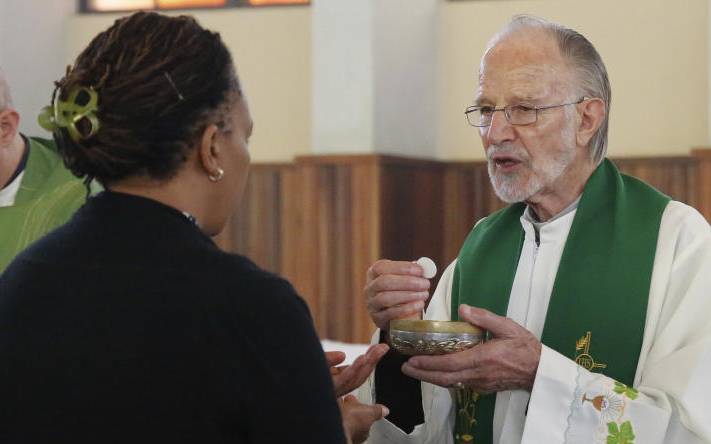
The Rev. Mario Lacchin presides over a Mass at the Restoration Centre Catholic Church, Nairobi, Kenya Sunday, June 30, 2019. Sabina Losirkale's family has accused the Italian missionary of impregnating her when she was 16. Lacchin has denied the claim and refused a paternity test. (AP Photo/Brian Inganga)
The Vatican is investigating a Kenyan man’s claim that his father is an Italian missionary priest who impregnated his mother when she was 16, a case that highlights how the Catholic Church is reckoning with Africa’s legacy of sexual abuse and priests fathering children.